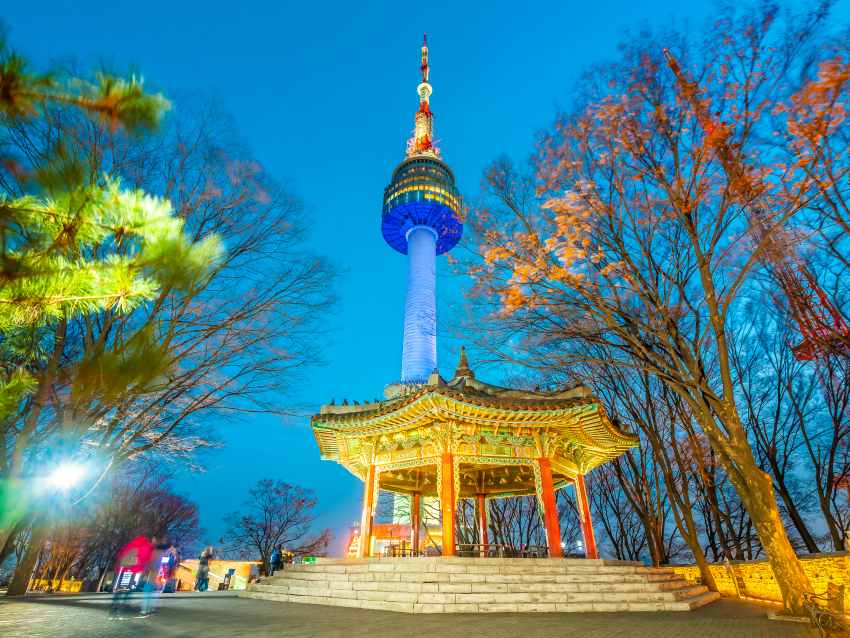Published on
September 28, 2025
With the government’s decision to grant Chinese tour groups temporary visa-free entry, South Korea is getting ready for an exciting spike in Chinese tourism. This new policy, which goes into effect on Monday, is expected to give the nation’s retail and tourism sectors a much-needed boost. The government’s action is viewed as a calculated attempt to boost inbound travel and fortify economic ties between the two countries, with the potential to draw an additional 1 million Chinese tourists by June 2025.
The New Visa-Free Policy
From October 2025 to June 30, 2026, Chinese group tourists, traveling with three or more people, will be granted visa-free access to South Korea for up to 15 days. This measure applies to travelers organized by designated domestic and overseas travel agencies. However, the existing visa-free policy for both individual and group travelers to Jeju Island, which allows for stays of up to 30 days, will remain unchanged.
This initiative is expected to significantly enhance South Korea’s tourism offerings, especially as it coincides with the highly anticipated Chinese National Day holiday, one of the country’s busiest travel periods. Despite the timing being slightly late for many Chinese travelers who had already planned their October trips, industry insiders are optimistic that the impact will be more visible toward the end of 2025 and into early 2026.
Economic Impact and Government Expectations
The South Korean government’s bold move aims to attract an additional 1 million Chinese visitors by mid-2025, a clear indication of its commitment to reviving the tourism sector, which has been hit hard by the pandemic. The policy comes on the heels of a promising rebound in Chinese tourist numbers to South Korea. In fact, Chinese arrivals have been steadily increasing, with 392,000 visitors in October 2024, a significant 69 percent of the pre-pandemic figures from the same month in 2019.
To make the most of the influx, South Korean businesses, particularly in the hospitality and retail sectors, are gearing up to cater to the anticipated demand. The government’s initiative aligns with broader efforts to diversify and rejuvenate the tourism landscape, ensuring that the country remains an attractive destination for international travelers.
Tourism and Retail Sectors Prepare for a Boom
With the policy officially rolling out during one of China’s busiest travel periods, South Korea’s tourism and retail industries are not wasting any time in capitalizing on this opportunity. Hotels, resorts, and duty-free retailers are already preparing to welcome the expected surge in Chinese tourists, launching marketing campaigns and offering special promotions aimed at enticing these high-value customers.
Shilla Duty Free, for instance, has already prepared for the arrival of the Dream cruise ship, which will dock at Incheon on Monday. Passengers disembarking from the large ship, which originates from Tianjin, will be welcomed with an array of gifts and discounts, including up to 60 percent off on popular cosmetics. Lotte Department Store has also rolled out special promotions, providing gifts for Chinese shoppers at its flagship outlet.
In addition to these promotional efforts, Amorepacific, one of the leading beauty brands in South Korea, is making its presence felt at Incheon International Airport. The company is planning to open two pop-up stores for its prestigious Sulwhasoo line, which is well-known among Chinese consumers for its luxury skincare products. These strategic moves are expected to enhance the appeal of South Korea as a destination for shopping and leisure, reinforcing the importance of the retail sector in the country’s tourism strategy.
China-South Korea Relations and the Visa Waiver Scheme
This new visa-free policy follows a series of measures aimed at improving relations between China and South Korea. Notably, China announced a temporary visa waiver for South Korean visitors last November, which has contributed to the revival of travel between the two countries. These reciprocal efforts are aimed at fostering closer ties and facilitating more exchanges, particularly in the tourism and business sectors.
While the policy’s immediate effect may not be fully realized during the initial roll-out, as many Chinese tourists had already finalized their October travel plans, experts anticipate a gradual increase in Chinese arrivals. By 2026, the policy is expected to have a more noticeable impact, with the country’s retail and tourism sectors expected to see steady growth from the Chinese market.
The Future of South Korean Tourism
Looking ahead, the South Korean government’s efforts to boost tourism are expected to have lasting effects. The introduction of visa-free entry for Chinese tourists is part of a broader strategy to strengthen the country’s position as a global tourism hub. As the Chinese economy continues to recover and international travel resumes, South Korea stands to benefit from its strategic location, rich cultural heritage, and modern amenities.
With the introduction of new tourism policies, the country is positioning itself as a prime destination for Chinese travelers, particularly in the wake of the pandemic. The focus on retail and luxury tourism is especially significant, as Chinese tourists are known for their strong spending power in these sectors.
Conclusion
In conclusion, South Korea’s decision to allow Chinese visitors to enter the country without a visa is a significant step in the country’s efforts to regain its position as one of Asia’s most popular travel destinations. South Korea is well-positioned to increase tourism and fortify its economic relations with China by embracing more Chinese visitors and providing a variety of customized experiences. In order to ensure that the influx of Chinese tourists is met with first-rate service and top-notch offerings, the hospitality and retail sectors are already mobilizing to meet the demand. With this new program in place, tourism in South Korea is expected to soar, helping the country’s economy to recover and expand.
link

